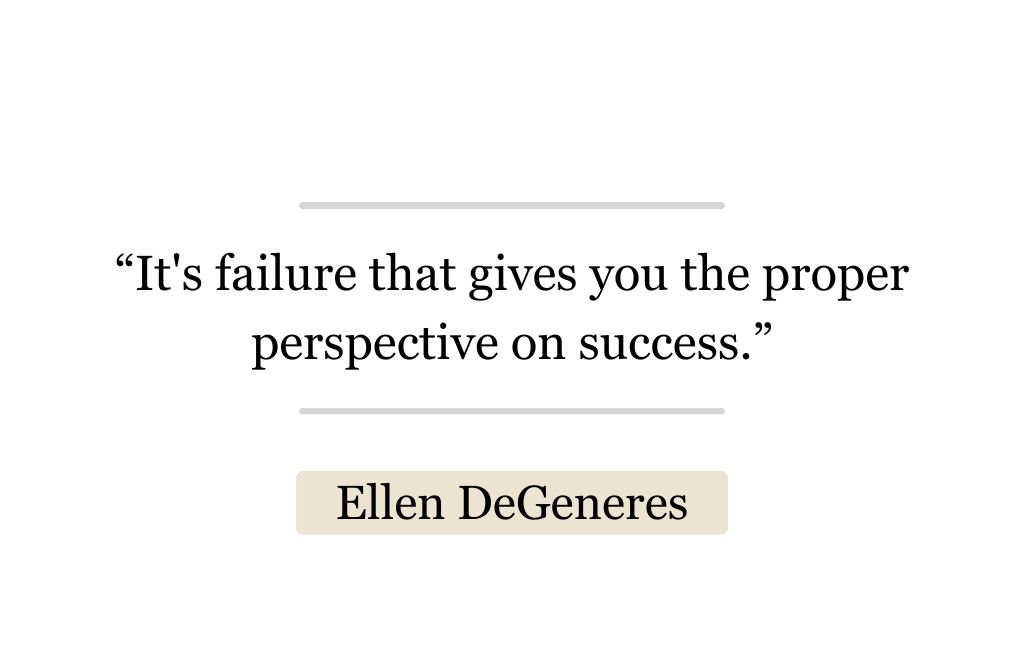Startups are notoriously difficult and startup mistakes are commonplace. Entrepreneurs are expected to be marketers, leaders, and HR managers – can you imagine the confusion and mental load of switching between roles while trying to grow a business? Plus, the current environment is rife with competition and female entrepreneurs face unique challenges like self-confidence issues and the overwhelming fear of failure.
But you should change your mindsets and see mistakes for what they are – an opportunity to learn and grow. By learning from inspiring female entrepreneurs’ failures, we can normalize mistakes and see them as an essential part of the journey.

Here are the biggest startup mistakes from inspiring female entrepreneurs and key takeaways on how we can learn from them.
9 Startup Mistakes and Key Takeaways From Female Entrepreneurs
1. The “Too Much Too Soon” Trap
When entrepreneurs attempt to expand too quickly or diversify their offerings without testing and working on their core business values, they can spread themselves too soon and lose focus on what matters.
This is a common start-up mistake and one that Emily Weiss, founder of Glossier, made on her journey. After building up a successful blog, she initially launched 4 products. Fast forward to becoming an acclaimed and sought-after brand, Glossier laid off more than 80 people in 2022. Weiss admits that she “made some mistakes” on her path to scale and there were unexpected roadblocks like COVID-19.
Key Takeaway: Keep laser-focus on your core offering and values, focus on sustainable growth, and be prepared for unprecedented times and changing trends.
2. The “I Know Better” Thinking
You might be so excited that you jump into a new project without fully researching your audience or your first product was successful so you apply the same planning to the next one. If you find yourself doing this, slow down and take a moment to think carefully – this is a common startup mistake and one that countless entrepreneurs have made.
Christina Wallace, co-founder of Quincy Apparel and entrepreneur coach, did not properly research her audience when she started out which led to inventory issues, misjudged demand, and ultimately, financial struggles. Making informed decisions is non-negotiable for any woman starting a business.
Key Takeaway: Before starting out, look at industry reports, distribute a survey, and don’t assume that you know better – rather assume that you know nothing.
3. The “Hiring the Wrong Fit”
The team you build will drive your vision, execute your strategy, and contribute to the overall culture of your company. A common startup mistake is to only hire for skills when your company’s long-term success relies on company behavior and values.
Marla Malcolm Beck, co-founder of Bluemercury, a luxury beauty retailer, experienced this early on, and now her approach toward endurance is to focus on people. In an interview with Forbes, Beck explains her radical human resource model where she inspires her employees by offering more than a paycheck but a new career path, training programs, and unwavering belief in them.
Key Takeaway: Your startup is only as good as your people so choose wisely, hire for more than skills – look at values, and always think about how you can retain talent.
4. The “Lack of delegating”
Unfortunately, women delegate less than men which can have harmful effects. Delegating less can make you more prone to busyness and less time for the big-picture work.

Loes Daniels is the founder of Experiencegift. Experiencegift is an award-winning gifting company that has grown exponentially over the past few years. When starting her venture, she found herself taking on too much work and she soon realized that not only was this approach unsustainable but it presented a bigger problem.
Loes ended up working in her business instead of on her business.
Key Takeaway: Delegate everyday tasks and work to team members that you trust so that you can work more on the vision and strategy.
5. The “Wasting money” Issue
Ineffective financial management is one of the top business mistakes to avoid as it could lead to your downfall and hurt your company’s morale. It is so important to evaluate where every dollar is spent and keep questioning it despite good cash flow or financial success.
Jen Rubio, founder of the very successful start-up Away learned this lesson after having to cut down on staff. In an article with Inc, she says she will always prioritize profitability, even if this means disrupting her company.
Key Takeaway: Meticulously evaluate your finances, monitor cash flow, and plan for contingencies. A good idea would be to become more financially literate, and women in business podcasts can be the perfect starting point.
6. The Confidence Gap
Confidence is an essential trait for all entrepreneurs and overconfidence is one of the top psychological predictors of whether or not you will become an entrepreneur. Women often experience a confidence gap – they underestimate themselves and experience self-doubt. But for more female entrepreneurs to try, fail, and try again: we need to cultivate confidence.
Recommended Reading: 15 Effective Confidence-building Exercises for Women

Image credit: TechCrunch Disrupt San Francisco 2018 – Day 2 by TechCrunch is licensed under CC BY 2.0.
Whitney Wolfe Herd is a woman that despite being a victim of sexual assault and going against the grain has remained confident. Her mission has been steadfast, and she has empowered women through a successful dating app aimed at women, Bumble, and has created an investment fund to help female entrepreneurs.
Key Takeaway: Cultivate confidence by trying confidence-building exercises and find a vision or mission that you truly believe in. As Bumbe’s slogan says, make the next move and set the tone for more women to do the same – the power dynamics are changing.
7. The Unequal Balancing Act
Everyone knows that building a business is hard work, and ambitious women and mompreneurs can get sucked into the daily demands and forget to schedule the necessary time for their personal lives.

Payal Kadakia is the founder of the revolutionary Gym subscription, ClassPass. But she has had a lot of mental struggles when working on her business, even once it was successful. She always remembers her startup fears from early days and to avoid them, she missed birthdays, lost friends and struggled mentally. It took personal and professional goal-setting for Payal to achieve work-life balance – a balance she desperately needed.
Recommended Reading: Work-life Balance for Women: Find Focus and Fulfillment in 4 Easy Steps
Key Takeaway: Always take note of your priorities, mental health, and your happiness. Try a work-life balance survey, set goals, and keep working to find fulfillment and focus.
8. The Networking and Support Dilemma
Women need to lean on other women, especially when starting out on one of the biggest challenges, a business venture. Not getting support is one of the most common yet most avoidable startup mistakes. Women also need to network, and lean into conversations and opportunities.
Lisa Price founded Carol’s Daughter, a company that sells natural beauty products focused on black women. She started out by making products in her Brooklyn apartment. It was Lisa’s mom that pointed out that she had real business potential on her hands. We all need a push, a support system, and people to get insights from – friends and networks are vital for women’s success.
Key Takeaway: Ask for help, join female communities like BusinessWomen, and use professional networks or funding programs or join a program like Techstars Accelerators.
9. The Lack of Risk-Taking
Most entrepreneurs have had to take risks at some point in their journey. Without the willingness to take risks, your business might never kick off or reach its full potential. Risk-taking does not mean blindly jumping into an idea, but strategically planning and challenging the status quo. In a competitive world that is saturated with “sameness,” this could be your biggest competitive advantage.

Katrina Lake is the founder of Stitch Fix, a fashion-based subscription service that offers personal style to the mass market. Lake did not have a very entrepreneurial spirit growing up, but she had creativity. She made a plan to tackle her weak spots and become less risk-averse. She applied to Harvard Business School and worked on Stitch Fix in her spare moments, allowing her to work on her business while growing her business knowledge and expertise.
Key Takeaway: Embrace risks and make a plan to take calculated ones like preparing, planning extensively, or taking part in an educational course – as long as you never stop thinking big and out of the box.
Embrace Your Mistakes And Keep Learning
These women have made mistakes, been resilient, and gone from startup to scale-up and then thriving businesses. Startup mistakes didn’t stop these women, but propelled them forward, stimulated them, and even helped them refocus. You can learn from their mistakes too and avoid common business errors like thinking you know better, doing too much too soon, and not getting the support you need.
And remember, the biggest business failure is the unwillingness to try.
Do you have some mistakes that people should know about? Share your story now and empower others to make mistakes.












![Did you know Beyoncé is this close to billionaire status? 💸 Her net worth is estimated at $800 million—and climbing. She’s the most awarded and nominated artist in Grammy history. But she’s not just making music. As the founder of @parkwood, she built a creative empire for her music, films, and cultural projects. And now, she’s entered the spirits game with her own whiskey brand, @sirdavis. 🥃 One of the most powerful Black female entrepreneurs of our time—and one of the best-selling artists ever.
✨ Read her full journey → [link in bio] #BusinessWomen #Beyonce #NetWorth #Parkwood #SirDavis #WomenInMusic #BlackExcellence #FemaleEntrepreneurs #BoldMoves #FromStageToCEO #WomenWhoLead Did you know Beyoncé is this close to billionaire status? 💸 Her net worth is estimated at $800 million—and climbing. She’s the most awarded and nominated artist in Grammy history. But she’s not just making music. As the founder of @parkwood, she built a creative empire for her music, films, and cultural projects. And now, she’s entered the spirits game with her own whiskey brand, @sirdavis. 🥃 One of the most powerful Black female entrepreneurs of our time—and one of the best-selling artists ever.
✨ Read her full journey → [link in bio] #BusinessWomen #Beyonce #NetWorth #Parkwood #SirDavis #WomenInMusic #BlackExcellence #FemaleEntrepreneurs #BoldMoves #FromStageToCEO #WomenWhoLead](https://scontent-ams2-1.cdninstagram.com/v/t39.30808-6/495255594_122184586070306459_2350172612755558244_n.jpg?stp=dst-jpg_e35_tt6&_nc_cat=106&ccb=7-5&_nc_sid=18de74&_nc_ohc=k0LH-0-gU9wQ7kNvwEh_sug&_nc_oc=AdnzaPevYmIxdAn0logXiQwzeXf7uaehHEbTQ_x4SO_8OyRVGQ02qZG8nTc9zrM4-eA&_nc_zt=23&_nc_ht=scontent-ams2-1.cdninstagram.com&edm=ANo9K5cEAAAA&_nc_gid=az-o4femkMMBQb8sSknBtQ&oh=00_AfLX7j8jDlFCl-AGTtEG-32FRumaAhyXiRnkM2f7TBGg-Q&oe=68295F47)

![@amygriffin is betting on women. She is a powerhouse in venture capital, known for backing bold, female-led brands and reshaping the consumer landscape. She founded @g9_ventures that has backed stand-out brands like @bumble, @goop, and @hellosunshine. She’s also the best-selling author of The Tell—an Oprah’s Book Club pick. 📚 ✨ Learn more about Amy → [link in bio] #AmyGriffin #G9Ventures #FemaleInvestors #BoldLeadership #WomenWhoInvest #VentureCapital #WomenBackingWomen @amygriffin is betting on women. She is a powerhouse in venture capital, known for backing bold, female-led brands and reshaping the consumer landscape. She founded @g9_ventures that has backed stand-out brands like @bumble, @goop, and @hellosunshine. She’s also the best-selling author of The Tell—an Oprah’s Book Club pick. 📚 ✨ Learn more about Amy → [link in bio] #AmyGriffin #G9Ventures #FemaleInvestors #BoldLeadership #WomenWhoInvest #VentureCapital #WomenBackingWomen](https://scontent-ams4-1.cdninstagram.com/v/t39.30808-6/493054012_122183900978306459_6601743929500349133_n.jpg?stp=dst-jpg_e35_tt6&_nc_cat=109&ccb=7-5&_nc_sid=18de74&_nc_ohc=HIIJiQj3ttwQ7kNvwFAm5ai&_nc_oc=AdnjyAliqnCXssrJXPkJzZ3K8D1CjveCYg2zC2_ZzT7iF4A6-3jRKGPFtAXPXFJrMsU&_nc_zt=23&_nc_ht=scontent-ams4-1.cdninstagram.com&edm=ANo9K5cEAAAA&_nc_gid=az-o4femkMMBQb8sSknBtQ&oh=00_AfJqn5rAJyXCIHp0OYtoG3WPeycnEdGF6GP10sQxKzv01A&oe=68295848)
